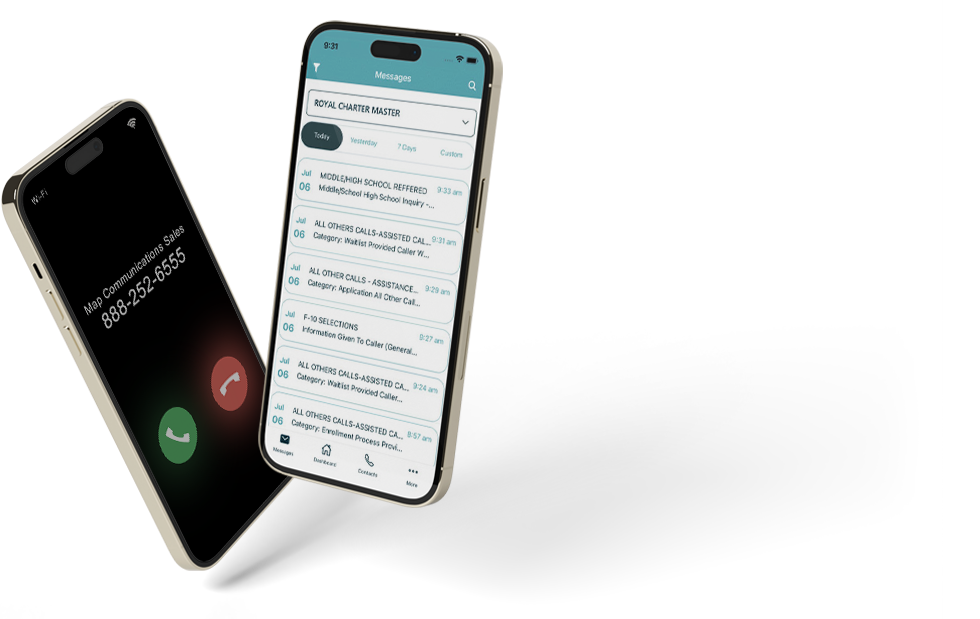Not sure where to start when choosing a call center? You’re not alone. Figuring out how to choose a call center can feel overwhelming, especially when the stakes are high. While outsourcing and virtual receptionists are popular choices, many people fail to do their due diligence when selecting the right partner. The right choice can improve response times, boost satisfaction, and help your business scale. The wrong one? It can cost you customers and credibility.
Choosing well means looking beyond the surface. If you’re going to hand over your customer interactions, you deserve a partner who treats them with care.
Why Choosing the Right Call Center Matters
A first impression can make or break a relationship. This is where learning how to choose a call center outsourcing service becomes crucial. A professional, responsive team builds trust right away, while a frustrating or impersonal experience can drive people straight to your competitors.
Outsourcing is often more cost-effective than hiring and training an in-house staff, especially when you factor in benefits, equipment, and turnover. But saving money shouldn’t mean sacrificing quality. The best call centers combine affordability with excellence, offering trained agents who understand your business and treat your customers with care.
Key Factors to Consider When Choosing a Call Center
Choosing a call center system means finding a partner who can meet your requirements now and grow with you later. From call volume to tech tools, here’s what to think about before making a decision:
Your Business Requirements and Call Volume
Start with the basics. Do you need 24/7 support or just coverage during business hours? Are you expecting steady call traffic, or do you have seasonal spikes that require flexibility? Make sure the provider can handle your call volume and tailor their services to fit your requirements, not the other way around.
Call Center Type: Inbound, Outbound, or Both?
Some call centers specialize in inbound calls, customer service and support. Others focus on outbound sales and lead generation. Many do both. Think about what role the call center will play in your operations and choose a model that supports your goals.
Location: Onshore vs. Offshore Outsourcing
There are pros and cons to outsourcing. Onshore teams may offer stronger cultural alignment and fewer language barriers, while offshore providers often come at a lower cost. Consider time zones, accent clarity, and how important local knowledge is to your customer experience.
Technology and Call Center Systems
The best call centers use modern, cloud-based platforms that integrate with your existing CRM or help desk software. They may also offer interactive voice response (IVR) systems, real-time dashboards, and omnichannel support. When choosing a call center system, you don’t need to be a tech expert, but you do need to make sure the provider is using secure, reliable, and up-to-date tools that support your operations.
Experience in Your Industry
A call center that understands your business will always deliver better service. Whether you’re in healthcare, law, tech, or retail, ask if they’ve worked with similar clients. Look for case studies, testimonials, or client references to back it up.
Scalability and Flexibility
Can the call center scale with your business? Can they handle scheduling appointments, collecting payments, or qualify leads? Are they Ready for additional communication channels like email, SMS, or live chat if you decide to expand? Flexibility now will save you from switching later.
Security, Compliance, and Data Handling
If you work in a regulated industry, security is non-negotiable. Ask about HIPAA compliance, PCI standards, SOC2, HITRUST, or other relevant certifications. A trustworthy provider should be able to explain their protocols without dodging the details.
Pricing Models and Transparency
Different call centers use different pricing structures; some charge per minute, others per agent. Both models can work, but transparency is key. Make sure you understand what’s included and watch out for surprise fees or vague contract terms.
How to Choose a Call Center Outsourcing Service
Once you’ve narrowed down your options, it’s time to get specific. Knowing how to choose a call center means asking the right questions, understanding what’s negotiable, and making sure the provider aligns with your goals.
Use this quick checklist to guide your conversations with potential partners:
- What industries do you specialize in?
Experience in your field can cut down the learning curve and improve customer interactions from day one.
- How do you train your agents?
Ask about onboarding processes, ongoing training, and how they ensure quality and consistency.
- Can your system integrate with ours?
Compatibility with your CRM, help desk, or ticketing platform is key for smooth handoffs and detailed reporting.
- What happens during peak call times?
You want to know if they can handle high volume without dropping service levels.
- How do you measure success?
Are they tracking KPIs like average handle time, first-call resolution, or customer satisfaction? A good provider should be able to show you the data.
- Can we start with a short-term contract or trial?
Trial periods or flexible contracts give you time to evaluate their performance without locking you in too soon.
When you know how to choose a call center that fits, you’re in a much stronger position to find a team that will truly support your customers and your bottom line.
Mistakes to Avoid When Choosing a Call Center
When figuring out how to choose a call center outsourcing service, it’s easy to fall into common traps. Choosing based on price alone might seem smart upfront, but low-cost providers often come with high risks: untrained agents, poor service quality, and frustrated customers.
It’s also a mistake to ignore customer feedback. Reviews and testimonials offer a clear look at how the provider actually performs, not just what they promise. Scalability is another key factor that gets overlooked. Your business may grow or experience seasonal spikes, and your call center should be ready to grow with you.
Finally, make sure their service aligns with your brand’s tone and values. Even the best-trained agents can leave a bad impression if they don’t sound like a natural extension of your team.
Final Tips for Choosing a Call Center System
Before you commit to one provider, get input from the people who will be impacted most: your customer service or sales teams. They know the day-to-day challenges and can help you evaluate whether a provider’s tools and support will meet your requirements.
Test call quality and responsiveness yourself by calling as a customer would. How long does it take to reach someone? Do they sound professional and informed?
Most importantly, you should look for a partner, not just a vendor. The right provider will be invested in your success, offer real solutions, and adapt as your business evolves.


